Filter by
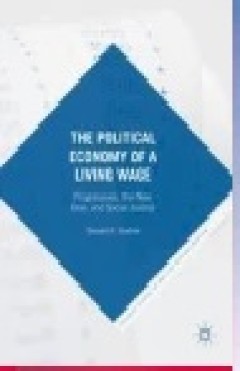
The Political Economy of a Living Wage
This book tells the story behind President Franklin D. Roosevelt’s use of the phrase "living wage" in a variety of speeches, letters, and statements, and examines the degree to which programs of the New Deal reflected the ideas of a living wage movement that existed in the US for almost three decades before Roosevelt was elected president. Far from being a side issue, the previously unexplore…
- Edition
- -
- ISBN/ISSN
- 978-3-319-32473-9
- Collation
- X, 292
- Series Title
- Palgrave Studies in American Economic History
- Call Number
- -

The Future of Work in Information Society
This book investigates the question as to whether technological developments will ultimately mean the end of work and, if so, what the consequences will be. The author addresses this question from the perspective of a technologist well versed in econometrics and game theory, and argues that it is not technology alone that could lead to the end of work, but its utilization by the capitalist syst…
- Edition
- 1
- ISBN/ISSN
- 978-3-319-33909-2
- Collation
- X, 72
- Series Title
- SpringerBriefs in Economics SpringerBriefs in Economics
- Call Number
- -

25 Years of Transformations of Higher Education Systems in Post-Soviet Countr…
This open access book is a result of the first ever study of the transformations of the higher education institutional landscape in fifteen former USSR countries after the dissolution of the Soviet Union in 1991. It explores how the single Soviet model that developed across the vast and diverse territory of the Soviet Union over several decades has evolved into fifteen unique national systems, …
- Edition
- -
- ISBN/ISSN
- 9783319300689
- Collation
- XXVIII, 482 halaman
- Series Title
- Palgrave Studies in Global Higher Education
- Call Number
- 370 TWE

Nuclear Security : Countering the Threat From States and Non-State Actors
The danger posed by nuclear weapons and fissile materials is ever present. The end of the Cold War and the significant reduction in the size of Russian and U.S. nuclear stockpiles did not change this fact of life. There are now nine states that possess nuclear weapons – the United States, Russia, the United Kingdom, France, China, Israel, India, Pakistan, and North Korea – and the number of…
- Edition
- -
- ISBN/ISSN
- -
- Collation
- -
- Series Title
- -
- Call Number
- 530 WIC n
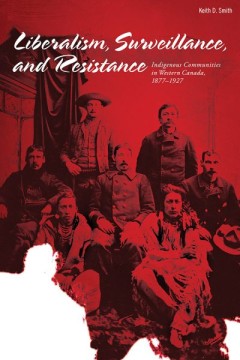
Liberalism, Surveillance, and Resistance Indigenous Communities in Western C…
Canada is regularly presented as a country where liberalism has ensured freedom and equality for all. Yet with the expansion of settlers into the First Nations territories that became southern Alberta and BC, liberalism proved to be an exclusionary rather than inclusionary force. Between 1877 and 1927, government officials, police officers, church representatives, ordinary settlers, and many ot…
- Edition
- -
- ISBN/ISSN
- 9781897425398.01
- Collation
- -
- Series Title
- The West Unbound: Social and Cultural Studies
- Call Number
- 334 pages
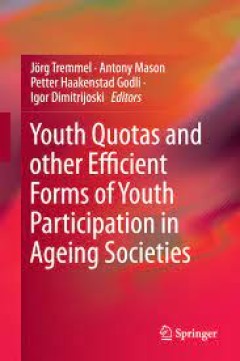
Youth Quotas and other Efficient Forms of Youth Participation in Ageing Socie…
This book examines ways to ensure that the rights, interests and concerns of young people are properly represented in Western democracies. One new proposal is the introduction of youth quotas in political institutions in order to counter the possible marginalization of young people caused by demographic ageing and, thereby, an overrepresentation of the interests of the elderly. The book expl…
- Edition
- -
- ISBN/ISSN
- 978-3-319-13431-4
- Collation
- -
- Series Title
- -
- Call Number
- -

Yearbook on Space Policy 2012/2013 Space in a Changing Worl
The Yearbook on Space Policy is the reference publication analyzing space policy developments. Each year it presents issues and trends in space policy and the space sector as a whole. Its scope is global and its perspective is European. The Yearbook also links space policy with other policy areas. It highlights specific events and issues, and provides useful insights, data and information on sp…
- Edition
- -
- ISBN/ISSN
- 978-3-7091-1827-6
- Collation
- -
- Series Title
- -
- Call Number
- -
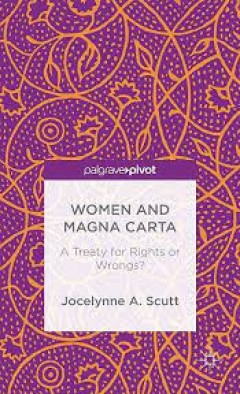
Women and The Magna Carta A Treaty for Control or Freedom
On the eight-hundredth anniversary of the Magna Carta, Women and the Magna Carta investigates what the charter meant for women's rights and freedoms from an historical and legal perspective.
- Edition
- -
- ISBN/ISSN
- 978-1-137-56235-7
- Collation
- -
- Series Title
- -
- Call Number
- -

Political Activist Ethnography Studies in the Social Relations of Struggle
Featuring research from Aotearoa (New Zealand), Bangladesh, Canada, Poland, South Africa, and the United States on matters as diverse as anti-poverty organizing, prisoners’ re-entry, anti-fracking campaigns, left-inspired think-tank development, non-governmental partnerships, involuntary psychiatric admission, and perils of immigration medical examination, contributors to this volume adopt a …
- Edition
- -
- ISBN/ISSN
- 9781771993999
- Collation
- -
- Series Title
- -
- Call Number
- 6 x 9, 304 pages
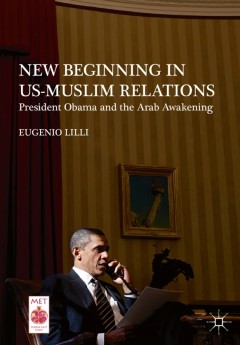
New Beginning in US-Muslim Relations
“In this clear, richly researched, and compelling book, Eugenio Lilli demonstrates that President Obama’s Middle Eastern policies reflect ‘Liberal Talk, Realist Thinking.’ In a wide-ranging study, which includes analysis of the recent Arab uprisings, Lilli argues that there was no re-setting of America’s relationship with the Middle east. On the contrary, US policy under Obama remaine…
- Edition
- 1
- ISBN/ISSN
- 978-1-137-58623-0
- Collation
- XIV, 302
- Series Title
- Middle East Today
- Call Number
- -
 Computer Science, Information & General Works
Computer Science, Information & General Works  Philosophy & Psychology
Philosophy & Psychology  Religion
Religion  Social Sciences
Social Sciences  Language
Language  Pure Science
Pure Science  Applied Sciences
Applied Sciences  Art & Recreation
Art & Recreation  Literature
Literature  History & Geography
History & Geography